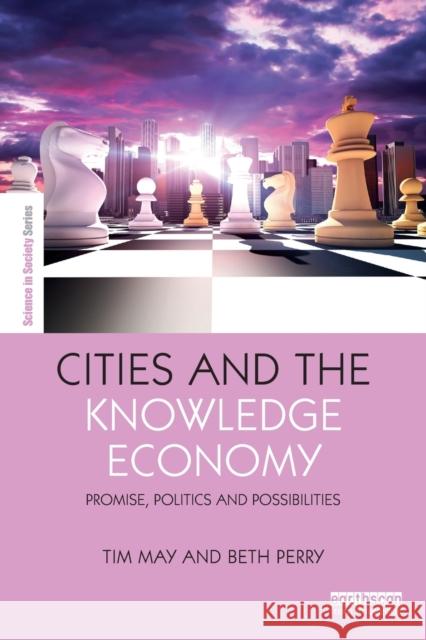Cities and the Knowledge Economy: Promise, Politics and Possibilities » książka
Cities and the Knowledge Economy: Promise, Politics and Possibilities
ISBN-13: 9781138810396 / Angielski / Miękka / 2017 / 190 str.
Cities and the Knowledge Economy: Promise, Politics and Possibilities
ISBN-13: 9781138810396 / Angielski / Miękka / 2017 / 190 str.
(netto: 195,86 VAT: 5%)
Najniższa cena z 30 dni: 196,40
ok. 22 dni roboczych.
Darmowa dostawa!
This book provides an in-depth, interdisciplinary, international and comparative examination of the relationship between knowledge and urban development in the contemporary era. Through the lenses of promise, politics and possibility, it examines how different cities have sought to realize knowledge-based urban development and what this reveals about the relationship between politics, capitalism and knowledge production in cities. The book argues that the 21st century city has been predicated on a particular form of technocratic and economic knowledge that constitutes expertise as residing in elite and professional epistemic communities. In contrast, alternative conceptions of the knowledge society are founded on alternative epistemological assumptions which take democracy and the role of the citizen expert and communities of practice seriously. Drawing on a range of examples from cities around the world, the book reflects on new possibilities opening up for alternative forms of sustainable urbanism. In particular it examines the relationship between grassroots innovations and community activism and urban transformation and the possibilities for a reconstituted civic role for the university in reconstructing knowledge as a public good. Realizing such possibilities requires an examination of the strengths and limits of different knowledge practices which sit between critique and transformation. The book offers a framework for understanding the theory, production and practice of knowledge cities, with a specific emphasis on the organizational, cultural and epistemological changes needed to create more socially just, economically viable and environmentally resilient urban futures. This book is aimed at students and researchers across disciplines - geography, politics, business studies, management and organization, economics and planning - that have interests in contemporary urbanism and the role of knowledge in understanding socio-economic development. It will also be of interest to urban policy-makers and practitioners who work in this area.











